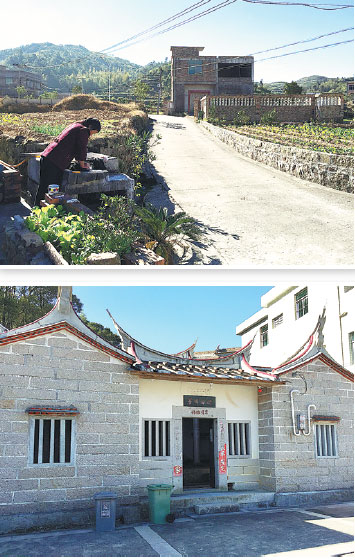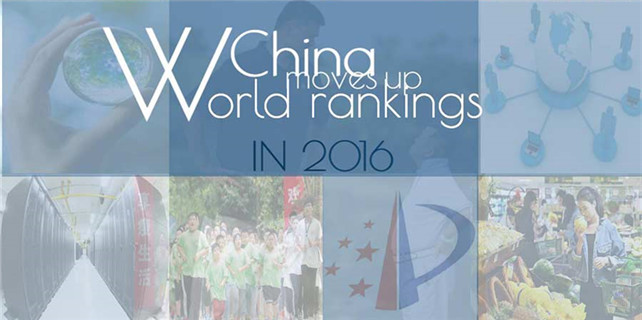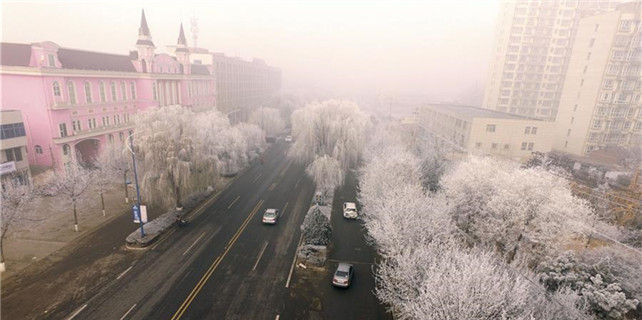From poverty to prosperity
An exceptional environment, terrific tea and improved infrastructure have transformed a poor village into a destination with rich allure. Yang Feiyue explores Junying in Xiamen, Fujian.
Junying village has transformed from a place of war to one of peace, of pollution to purity, and of poverty to prosperity.
Along the way, it has changed from an isolated location to an incredible tourism destination.
The idyllic settlement sits roughly 900 meters above sea level at the foot of the second-highest peak in Fujian province's Xiamen city, Zhuangyuanjian.
Half of the 80-minute drive to the settlement from Xiamen's Tongan county is spent spiraling up the slopes. Visitors arrive to discover traditional-style houses perched atop terraces chiseled out of green slopes. The blue sky is reflected in an equally blue lake.
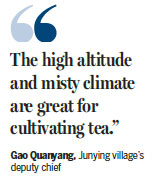
Indeed, it looks like a landscape painting.
Its status as one of Xiamen's most remote sites has preserved its primitive ecology.
Legend has it that the village got its name as a garrison site of a popular uprising led by Huang Cao in the late Tang Dynasty (618-907).
It enjoyed a militarily strategic location near the borders of Jiangxi and Guangdong provinces.
Today, about 200 households are perched atop roughly 740 hectares. It's difficult to imagine past unrest when gazing up its serene scenery.
Residents are hospitable and quick to offer outsiders a smile and a cup of tea.
Most grow the stuff, says Junying village's deputy chief, Gao Quanyang.
Some also cultivate fruit, rice or sweet potatoes, he says.
It's a far cry from when the hamlet was one of Xiamen's poorest settlements.
Then, rains melted the roads into muck, an elderly man recalls. And it was difficult to reach town, even during medical emergencies.
"There were chicken and duck droppings on the ground. And I could only bathe every 10 days," he says.
Wastewater previously poured directly into the rivers, which stank and attracted flies and mosquitoes.
The transformation began in 2013, when local authorities decided to turn Junying village into a picturesque attraction. Since then, new roads to and within the village have made transportation easier.
And pollution has been contained.
Villagers were asked to keep their animals in pens and dispose their waste, Gao says.
Over 2 million yuan ($288,400) was invested to construct a sewerage system in 2015. More than 90 percent of the wastewater is taken from houses via pipes for central treatment.
The improved environment made the hamlet an excellent place to plant tea, which has been cultivated there since 1998.
Now, Junying village has become one of Xiamen's most-important production sites. Plantations cover nearly 400 hectares.
"The high altitude and misty climate are great for cultivating tea," Gao says.
The village produces several varieties, including tieguanyin oolong.
Annual per capita income has jumped from 1,000 yuan to 15,000 yuan.
Tea cultivation draws visitors who savor not only the beverage but also the culture it brews, Gao says.
"They also join locals to plant, process and package the tea," he says.
Over 50,000 people arrived from such nearby cities as Zhangzhou and Quanzhou this year.
"They appreciate our environment and fresh air," Gao says.
The air is not only clean but also scented with the lingering aroma of tea.
Junying village also hosts many unique stone formations. Some resemble pigs' heads, while others seem to be covered by waves. Several feature fading inscriptions local lore says were done by historical figures.
The mountainside settlement's main attraction is the 5,000-square-meter Qicai (Seven Colors) Lake. Its sapphire waters are comparable to the water bodies in Sichuan province's Jiuzhaigou.
Unless you look closely, it can be difficult to tell where the water ends and the sky begins. Verdant trees and green mountains also hug the cobalt-colored crescent.
The eastern edge of the village is laced with hiking routes through leafy woods and flower-filled meadows, and bamboo suspension bridges cross ravines.
Cycling lanes and tea-exploration routes are in the works, the government says.
A growing number of homestays offer overnight accommodation.
Indeed, the natural appeal of the village's pristine environment, folksy authenticity and terrific tea mean not only are more urbanites arriving but also may stay longer.
And this is producing a legacy that's rich - in every sense.
Contact the writer at yangfeiyue@chinadaily.com.cn
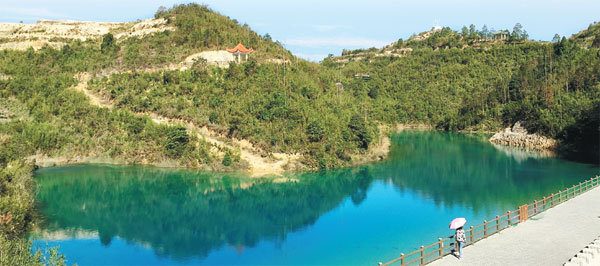
|
Top: A villager washes clothes outside her house. Above: An ancestral shrine in Junying village. Below: Qicai Lake has sapphire waters. Photos By Yang Feiyue / China Daily |
(China Daily USA 12/21/2016 page8)



